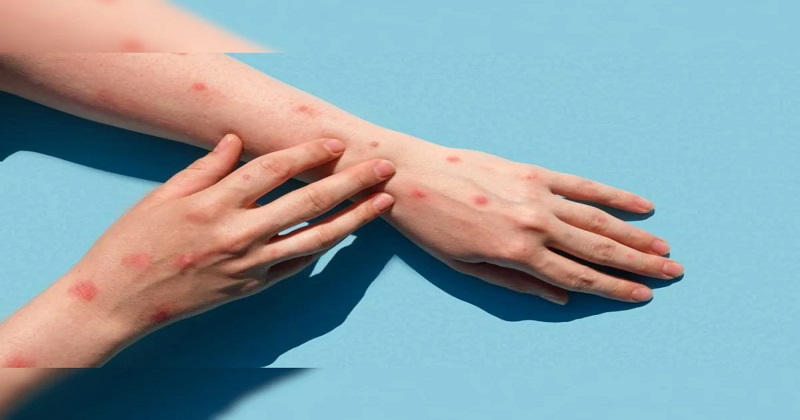
Thiruvananthapuram: Following the report of two confirmed cases of monkeypox in the country from Kerala, the state government issued standard operating procedures (SOP) on Wednesday for isolation, sample collection, and treatment of those infected or showing signs of the disease. Kerala Health Minister Veena George issued a statement outlining the SOP that all private and government hospitals must follow.
She stated that anyone who has travelled within the last 21 days to a country where monkeypox has been reported and has red spots on their body as well as one or more of the other symptoms, such as fever, headache, body ache, or fever, should be suspicious of virus infection. According to the minister, the risk of infection is increased by close physical or direct skin-to-skin contact, sexual intercourse, or touching an infected person’s bedding or clothing.
Anyone falling into one of these categories would be added to the primary contact list, she said, adding that infection is confirmed by a PCR test. As stated in the release, suspected and probable cases of monkeypox should be treated separately and in isolation, and the District Surveillance Officer (DSO) should be notified immediately. It stated that samples should be collected in accordance with the protocols established by the National Institute of Virology (NIV), and that the DSO would be responsible for sending them to the lab.
Only critically ill patients from state-run hospitals with isolation facilities should be referred to medical colleges, according to the SOPs. While transporting infected people from one hospital to another, health professionals should wear PPE kit, N95 masks, gloves, and goggles, and patients should wear a N95 or triple layered mask and any wounds on their bodies should be covered, according to the guidelines.
Following patient delivery, the ambulance and its equipment should be disinfected, and patient items such as clothing should be disposed of in accordance with the guidelines, according to the Health Department release. Confirmed cases of monkeypox should be treated exactly according to the Centre’s guidelines, and if there is any doubt about treatment, the state medical board should be consulted, it added. Because all international airports in the state have thermal scanners, anyone showing signs of fever will be examined for red spots by a medical team, and if such signs are found, they will be transferred to the nearest hospital with isolation facilities, and the DSO will be notified.
It was stated that health workers should monitor those on the primary contact list for 21 days for any symptoms by calling them on the phone and taking their temperature twice a day, and that the health worker or nurse in charge of monitoring should visit the contacts’ homes on a regular basis to ensure they follow the guidelines. If the primary contact person develops a fever, they should be isolated immediately, and if red spots develop, their samples should be sent for monkeypox testing, according to the release.
Those on the contact list who are not experiencing symptoms should not donate blood, cells, tissue, organs, or sperm, according to the statement. The Kerala government began testing for monkeypox infection at the Alappuzha NIV on Tuesday, using testing kits brought from the Pune NIV. On Monday, India confirmed the second case of monkeypox in Kerala’s Kannur district. It was a patient who arrived in Kerala on July 13 and was undergoing treatment at the Pariyaram Medical College in Kannur, north Kerala.
On July 14, the Kollam district of south Kerala reported the first case of monkeypox, a rare but potentially fatal viral illness. He is currently receiving treatment at Thiruvananthapuram’s Government Medical College Hospital. Both samples were sent to the National Institute of Virology (NIV) in Pune, where they were found to be positive for the virus. All those who had direct contact with the patient, according to the minister, are being closely monitored.
Monkeypox, according to the World Health Organization, is a viral zoonosis (a virus transmitted to humans from animals), with symptoms similar to those seen in smallpox patients in the past, though clinically less severe. Monkeypox has emerged as the most important orthopoxvirus for public health since the eradication of smallpox in 1980 and the subsequent cessation of smallpox vaccination.

Post Your Comments